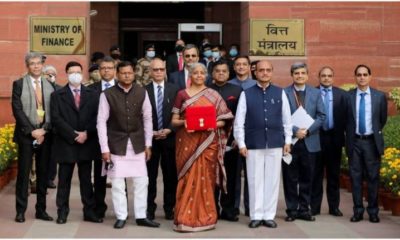Report
Can Philippines repeat India’s IT/ITeS success, JLL report


The following is the report by Ramesh Nair – COO & International Director, JLL India
As of 4Q15, India’s knowledge process outsourcing (KPO) sector is worth USD 150 bn. The country has been a leading outsourcing destination for many years now. The size of Philippines’ KPO industry, on the other hand, is only USD 22 bn. Of course, the size of its geography and economy is far smaller than India’s. Despite this limitation, the archipelago has established itself as a prominent provider of business process outsourcing (BPO) services for the world, and the BPO industry has become a significant contributor to Philippines’ economy.
However, Manila will need to move up the value chain to emerge at the top. The journey from BPO destination to being IT/ITeS-driven will require highly skilled talent, investment into developing this talent, creating the required infrastructure and implementing pro-IT policies. In fact, this is where the Philippine can learn from India’s success.
India is the R&D centre for many industries and companies. For example, the worldwide management consulting firm McKinsey & Co’s knowledge group is based out of New Delhi. A lot of McKinsey’s global knowledge is created in India. The Indian outsourcing market also caters to banking firms where the best management graduates are hired.
India’s journey
In India, the case for relaxing land ownership rules for foreigners was first made in 2005. Until then, India was not known as the leading global outsourcing destination that it is now. For the first time, job-generating foreign direct investment (FDI) was allowed in the country’s property sector, and India has not looked back. The country’s real estate sector has attracted around USD 26 billion from private equity funds since then.
India’s leadership in the IT/ ITeS sector is due to its edge in the higher-value knowledge process outsourcing. Factors that led to India’s success include:
· Conducive government policies, including the Software Technology Parks of India (STPI) policy and the Special Economic Zones (SEZ) Act for IT companies
· Proactive chief ministers of federal states focused on generating employment
· Lower labour cost and availability of skilled labour
· India is the world’s biggest English-speaking population
· Success of home-grown IT companies such as TCS, Infosys, Wipro, HCL, etc.
· Tax exemptions for IT firms
· Allowing higher floor area ratio (FAR) for developments in IT corridors
· Allowing cities to create their own niches (e.g. southern cities entered into software development, western cities contributed more in knowledge processing, northern cities continued with voice-based processes)
· Land being made available for development at subsidized rates
· Nodal agencies’ promises to supply uninterrupted power and good road connectivity to the IT corridors
· Developers’ steep learning curve to understand IT occupiers’ requirements quickly.
What the philippines can do
Like India, the Philippines must make land available to IT biggies for development – at subsidised rates – to attract them there. The government needs to create subsidised real estate. If the country can get Google to set up a R&D hub there, word will get around and other big players will follow.
As a safety net, foreign control must be given only to big players who will invest in large-scale projects that will generate many jobs. However, before allowing foreigners to own land, Philippines must ensure it will be easy for these big businesses to start operations. When such large players enter a country, the ease of doing business needs to be improved drastically.
It is a well-known reality that a country’s government needs to fix mechanisms related to ease of doing business before attracting foreign investment. For countries like the Philippines and India, there is a clear opportunity to actually leapfrog straight into the rapid-growth high-tech sectors and avoid manufacturing altogether.
Given China’s slowdown, there could be no better time for the Philippines to open up its IT and high-tech sectors. Many global funds are looking at emerging markets, and the Philippines could become the ‘next big thing’ for global capital flows.
-



 News3 weeks ago
News3 weeks agoKW Delhi 6 Mall Onboards New Brands
-



 News4 weeks ago
News4 weeks agoManasum Senior Living Launches IKIGAI GOA, A Senior Living Community in North Goa, in collaboration with Prescon Homes
-



 News3 weeks ago
News3 weeks agoCommercial Realty Gets Tech Savvy: Fast Construction, Enhanced Convenience
-



 News2 weeks ago
News2 weeks agoGodrej Properties Sells Rs 3k cr+ Homes of Godrej Zenith, Gurugram, within 3 days
-



 News4 weeks ago
News4 weeks agoBridging India Divide: Top 5 Tier- 2 Cities to Focus On
-



 News4 weeks ago
News4 weeks agoMultipoint Connection – A Definite Boon
-



 News3 weeks ago
News3 weeks agoRBI’s Status Quo on Key Policy Rates to Help Maintain the Real Estate Growth Momentum, Say Industry Stalwarts
-



 News1 week ago
News1 week agoOlive Announces Dhruv Kalro as Co-Founder
























